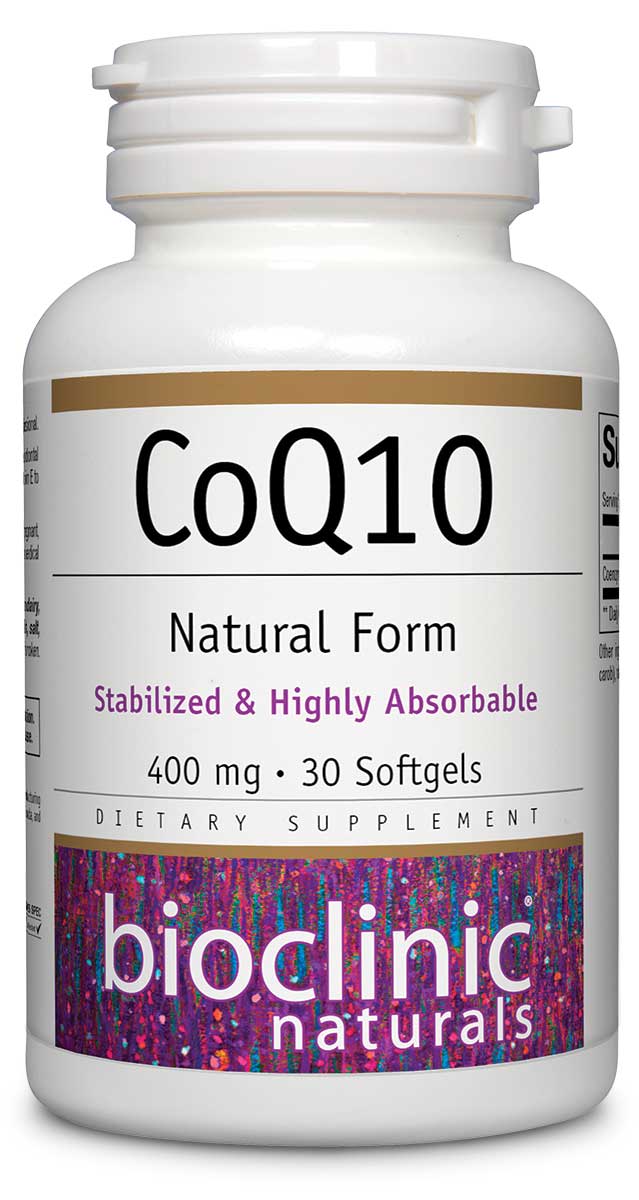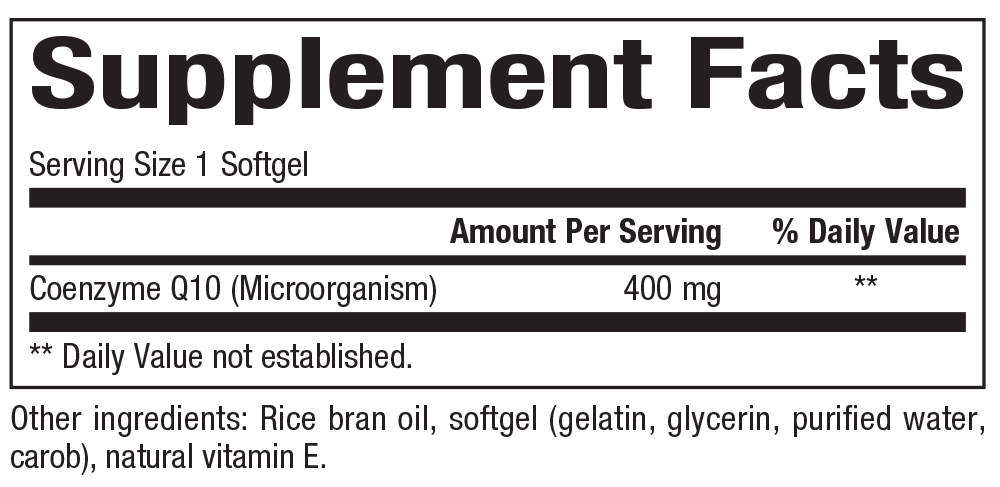
100% Natural CoQ10 · Stabilized & Highly Absorbable · 400 mg
400 mg
30 Softgels ( SKU: 9314U )
Supplement Facts:

Dosage:
Suggested Usage: 1 softgel per day or as directed by a health care professional.
Allergens:
Contains no artificial colors, preservatives, or sweeteners; no dairy, starch, sugar, wheat, gluten, yeast, soy, corn, egg, fish, shellfish, salt, tree nuts, or GMOs.
